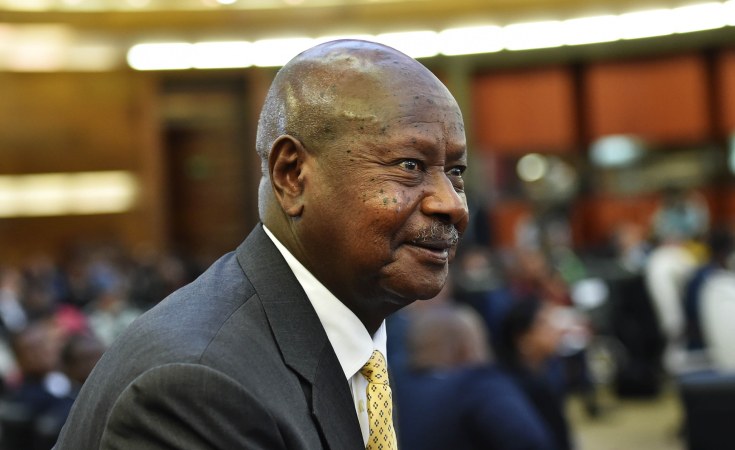Kampala, Udganda — For the past six months Ugandans have been forced to spend twice as much to afford necessities like fuel and food, among other commodities. Addressing the country Sunday night on how to survive the high cost of living, President Yoweri Museveni noted that Europeans have caused what he called an artificial problem leading to the higher cost of produce.
To this regard, Museveni said it was time to stop depending on who he called "mistake makers" in Europe, the United States and Russia -- who have caused the high prices.
"The Russians have blockaded the Ukrainian ports," Museveni said. "And I hear within the ports there are 25 million tons of wheat, the petroleum, and even the fertilizers. Remember, the fertilizers are also a problem because they are produced by Russia, I hear. If these people, if they are a bit humble. ... We need to advise our friends, the bazungu (whites) to please, find other ways of how to solve these problems."
Museveni argues that cutting taxes on commodities such as fuel, which has a ripple effect on the economy, will only cripple the economy.
Ziana Aigaru, an agriculturalist, disagrees. She said for nearly two years now, sales have been so low and have been impacted by the COVID-19 pandemic. She hopes Museveni will announce a tax cut to help businesses.
"Not only fertilizers by the way, even the herbicides -- all have hiked in terms of prices," Aigaru said. "For example, Bukoola (local agricultural produce manufacturer) is hiking the prices because of the tax that he incurs in importing the chemicals. So, if the taxes are reduced, that means the cost price will reduce."
As a solution, Museveni asked Ugandans to be frugal in their purchases of imported goods, stop depending on "rainfall agriculture," increase production and use locally made materials.
However, economist Madina Guloba said the president needs to show by example his own frugality through government expenditures that are not proportionate to government income.
"These industries need produce to continue functioning, especially agro-processing industries," Guloba said. "So, the moment we increase production but for home, it doesn't help. Then definitely commodity prices will also still stay high even if global patterns improve. You know, we need to think also (about) jobs. The moment you do all these things, the jobs are going to be lost. So, who are you going to tax in this time?"
Currently, fuel is selling at $1.56 per liter, and the cost is expected to increase.
Museveni said Ugandans will need to be patient until Uganda starts its own oil production in 2025 for prices to go down, which may also decrease the cost of living.


